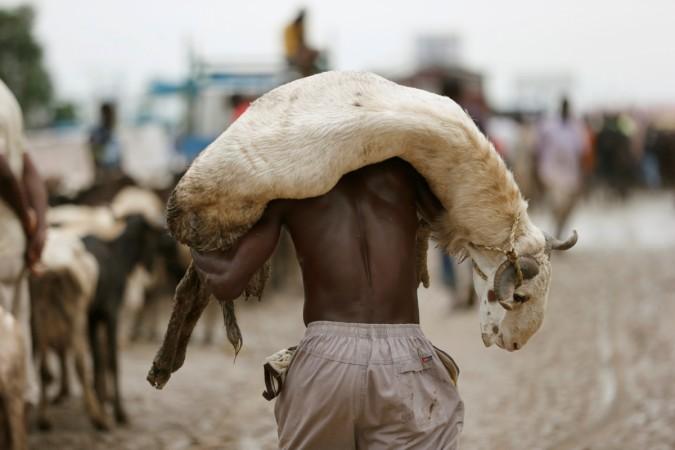![[Representational image] Eid Mubarak](https://data1.ibtimes.co.in/en/full/696266/eid-mubarak.jpg?h=450&l=50&t=40)
It's only been a few weeks since Muslims celebrated Eid ul-Fitr after a month-long fasting and it's time for another festive season for Muslims around the world. Eid ul Adha, commonly known as Bakrid in some countries, is just around the corner, which is a time when Muslims sacrifice cattle to honour one of the prophets.
Eid al-Adha is also known as Greater Eid and it translates to "festival of sacrifice" or feast of sacrifice." Bakrid is celebrated on the tenth day of Dhul-Hijjah - the last month of the Islamic calendar during which the holy pilgrimages are performed. In India, Eid ul Adha will be celebrated on Wednesday, August 22.
Eid al Adha is one of the two festivals that Muslims celebrate around the world besides Eid al-Fitr. There's a centuries-old history behind why Muslims celebrate Bakrid by sacrificing livestock and we are going to walk you through it.
Eid al Adha is a festival when Muslims sacrifice cattle like sheep, goats, ram, cows and camel, to honor Prophet Ibrahim's submission to God's command to sacrifice his own son. The act was so dear to Allah that sacrifice was mandated on all Muslims performing Hajj and those are financially capable.

There's a reason why Muslims sacrifice cattle during Bakrid. Just when Prophet Ibrahim was about to sacrifice his son, God ordered to kill an animal instead. The tradition continues to be followed even today to keep the spirit of sacrifice alive. The sacrifice done by the Muslims in the form of an animal is believed to be rewarded handsomely by Allah.
The rule of sacrificing is the same across the world. The choice of livestock, however, differs from country-to-country. In India, sheep, lambs, cows and camels are pretty common for sacrificial rituals. But due to legal restraints on sacrificing cows, a majority of the states in the country do not permit sacrificing the bovine.
Muslims celebrate Eid al Adha not too differently from Eid al-Fitr, except for the sacrificing of cattle. Eid al-Adha begins with morning prayers where Muslims gather in open grounds and recite special Eid prayers, post which the sacrifice takes place. The meat from the sacrificed animal is then distributed to the poor, friends and family while one-third of it is permitted to be consumed by the family that sacrificed the animal.
















